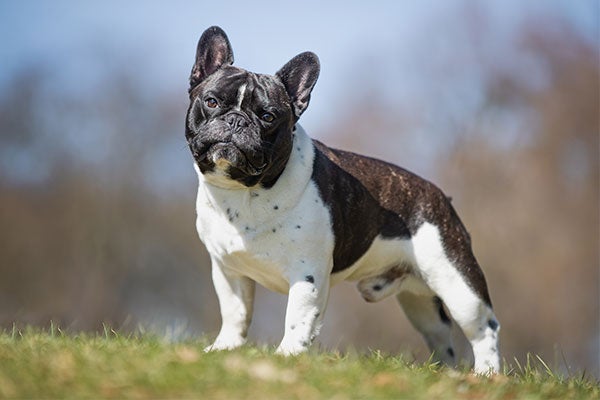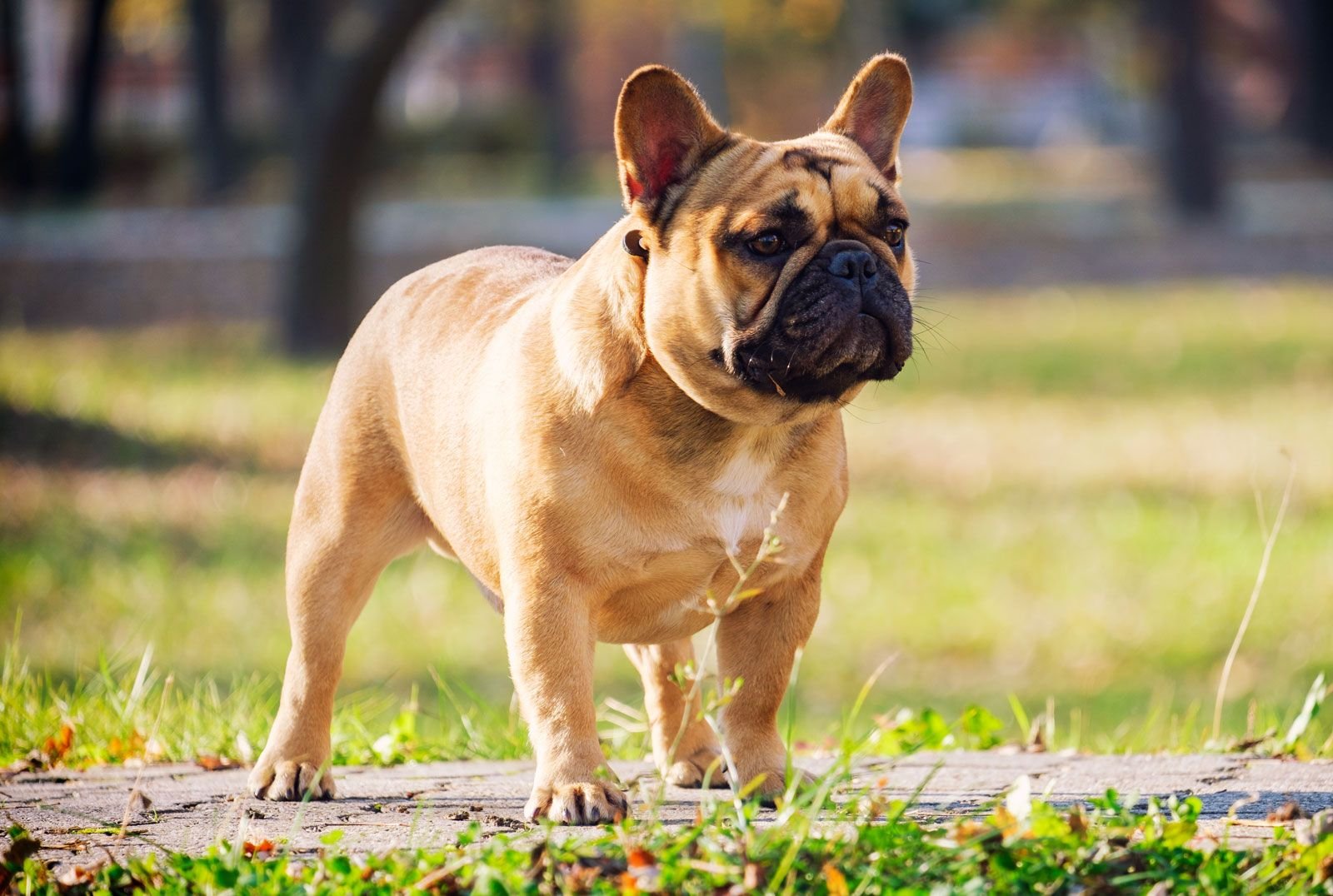French Bulldogs are a popular breed of dog known for their unique appearance and charming personality. Did you know that despite their name, French Bulldogs are not actually from France? They are believed to have originated in England, where they were bred as a smaller version of the English Bulldog. Today, French Bulldogs are loved by people all over the world for their compact size, friendly nature, and distinctive bat-like ears.
Although French Bulldogs are not French in origin, they have become synonymous with French culture. These lovable dogs have captured the hearts of many with their adorable characteristics and have become a symbol of French flair and sophistication. In recent years, the popularity of French Bulldogs has skyrocketed, with the breed ranking high on the list of most registered dog breeds in various countries.
French Bulldogs are not actually native to France, despite their name. They were originally bred in England and were popularized by lace workers from Nottingham who brought them with them to France during the Industrial Revolution. French Bulldogs quickly gained popularity in France and became closely associated with the country. So while they are not technically “French,” they have become a symbol of French culture and are beloved by people all over the world.

The Origins of the French Bulldog
The French Bulldog is a popular breed of dog known for its distinctive appearance and friendly nature. But despite its name, the French Bulldog is not actually from France. In this article, we will explore the origins of the French Bulldog and uncover its true heritage.
The French Bulldog originated in England in the early 19th century. It was created by breeding smaller Bulldogs with local ratters and Asian toy breeds, such as the Pug and the Miniature Bulldog. The result was a compact and muscular dog with a unique appearance and a playful temperament.
The breed gained popularity among lace workers in Nottingham, England, who migrated to France during the Industrial Revolution. They brought their beloved Bulldogs with them, and the dogs quickly became a favorite among the French working class. The French Bulldog’s popularity continued to rise, and it soon became a symbol of French culture and style.
Despite its English origins, the French Bulldog’s association with France and its widespread popularity in the country led to it being commonly referred to as the French Bulldog. The name stuck, and today, the breed is recognized and loved around the world as the French Bulldog.
Distinctive Features of the French Bulldog
The French Bulldog is known for its unique physical features, which set it apart from other breeds. Here are some of the distinctive characteristics of the French Bulldog:
- Small and compact body
- Large, bat-like ears
- Wrinkled forehead
- Short, smooth coat
- Brachycephalic (short-nosed) face
- Stocky build
- Expressive eyes
These distinctive features give the French Bulldog its unique charm and endearing appearance.
French Bulldog Temperament
The French Bulldog is known for its friendly and affectionate nature. Despite their small size, they have a confident and outgoing personality. They are sociable dogs that get along well with people of all ages, including children.
French Bulldogs are also known for their adaptability. They can live comfortably in apartments or houses, as long as they receive enough exercise and mental stimulation. They are not particularly high-energy dogs, but they do enjoy short walks and playtime.
Additionally, French Bulldogs are intelligent and eager to please, which makes them relatively easy to train. They respond well to positive reinforcement methods and enjoy learning new tricks and commands.
The French Bulldog’s Popularity Worldwide
The French Bulldog’s popularity has soared in recent years, making it one of the most sought-after dog breeds globally. Its lovable temperament, distinctive appearance, and adaptability have contributed to its rise in popularity.
In the United States, the French Bulldog consistently ranks among the top ten most popular breeds according to the American Kennel Club (AKC). It is a favorite choice for families and individuals alike, thanks to its friendly nature and low exercise requirements.
Similarly, in the United Kingdom, the French Bulldog’s popularity has skyrocketed in recent years. It has become a fashionable breed, often seen accompanying celebrities and influencers.
The French Bulldog’s popularity is not limited to English-speaking countries. It is also adored in countries like Brazil, Australia, and Japan, where it is often seen as a symbol of style and trendiness.
The French Bulldog in Pop Culture
The French Bulldog’s popularity extends beyond the realm of dog lovers. It has made appearances in various forms of pop culture, further solidifying its place in the hearts of many. Here are a few notable examples:
- Stella, the French Bulldog, is a beloved character in the television series “Modern Family.”
- Several celebrities, including Lady Gaga and Hugh Jackman, own and adore French Bulldogs.
- The French Bulldog has made its mark in the fashion world, often seen in advertisements and runway shows.
These appearances in popular culture have contributed to the French Bulldog’s image as a trendy and fashionable breed.
The Table Comparing French Bulldog with Other Breeds
| French Bulldog | Pug | English Bulldog | |
| Origin | England, but associated with France | China, but associated with England | England |
| Size | Small | Small | Medium to large |
| Coat | Short and smooth | Short and smooth | Short and dense |
| Temperament | Friendly, affectionate, and adaptable | Playful, charming, and mischievous | Stubborn, protective, and courageous |
| Health | Prone to respiratory issues and back problems | Prone to respiratory issues and eye problems | Prone to respiratory issues and hip dysplasia |
Key Takeaways: Are French Bulldogs French?
- French Bulldogs are not originally from France.
- They were developed in England in the 1800s.
- They were created by crossing bulldogs with terriers.
- French Bulldogs were initially used for ratting and bull-baiting.
- They gained popularity in France and became associated with the country.
Frequently Asked Questions
Here are some common questions about French Bulldogs:
1. What is the origin of French Bulldogs?
French Bulldogs, despite their name, actually originated in England. They were created as a smaller version of the English Bulldog and were used by lace workers in Nottingham, England. However, they later gained popularity in France, which is how they got their name.
These dogs were brought to France by the lace workers when they migrated there during the Industrial Revolution. The French fell in love with the breed and began breeding and developing them further, ultimately establishing the French Bulldog we know today. So, while they have French in their name, their origin is English.
2. What are the typical characteristics of French Bulldogs?
French Bulldogs have several distinct characteristics that make them easily recognizable:
First, they have a compact body with a sturdy build and a muscular frame. They have a distinctive “bat-like” ear shape and a short, flat muzzle. Their expressive, large eyes give them an adorable and endearing appearance.
French Bulldogs are known for their friendly and sociable temperament. They are affectionate, loving, and enjoy being around people. They make excellent companions and are great with children. Despite their small size, they are quite courageous and protective of their families.
3. Do French Bulldogs require a lot of exercise?
French Bulldogs have moderate exercise needs compared to some other breeds. They have short bursts of energy but are generally low-energy dogs. Daily walks and playtime in a secure area are usually enough to keep them physically and mentally stimulated.
Due to their brachycephalic (short-nosed) nature, French Bulldogs can have difficulty regulating their body temperature, especially in hot weather. It’s important to keep them cool and avoid excessive exercise in extreme temperatures to prevent overheating.
4. Are French Bulldogs prone to any health issues?
Like many dog breeds, French Bulldogs are prone to certain health conditions. Some common health issues they may face include:
1. Brachycephalic syndrome: Due to their short noses, French Bulldogs can have difficulty breathing and may experience respiratory problems.
2. Skin allergies: They are prone to skin allergies, which may result in itching, redness, and irritation.
3. Joint problems: French Bulldogs can be susceptible to joint issues like hip dysplasia and patellar luxation.
Regular veterinary check-ups, a balanced diet, and appropriate exercise can help manage these health issues.
5. Are French Bulldogs easy to train?
French Bulldogs are intelligent and eager to please, which makes them relatively easy to train. However, they can also be a bit stubborn at times, so consistent and positive reinforcement training methods work best with them.
Early socialization and basic obedience training are important for French Bulldogs to become well-behaved and well-adjusted dogs. With patience, consistency, and positive reinforcement, they can learn a variety of commands and tricks.

Male Vs Female French Bulldog: 10 Differences Between Them
In conclusion, French Bulldogs are not actually French in terms of their origins. They were originally bred in England in the 1800s as a smaller version of the English Bulldog. However, they do have a strong association with France due to their popularity among French lace workers who brought them to France.
Today, French Bulldogs are loved all around the world and have become one of the most popular breeds. They are known for their unique appearance, friendly personality, and adaptability to different living situations. So while they may not be “French” in terms of their origins, they are certainly beloved by many people globally!
